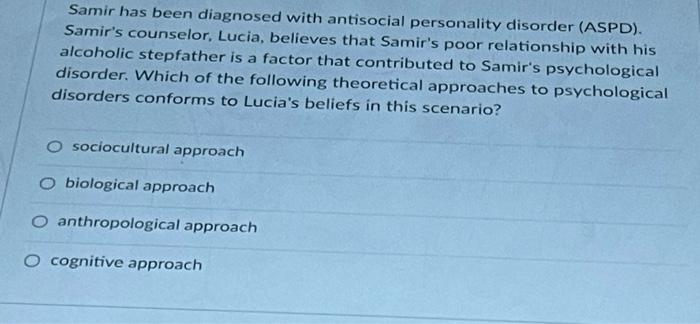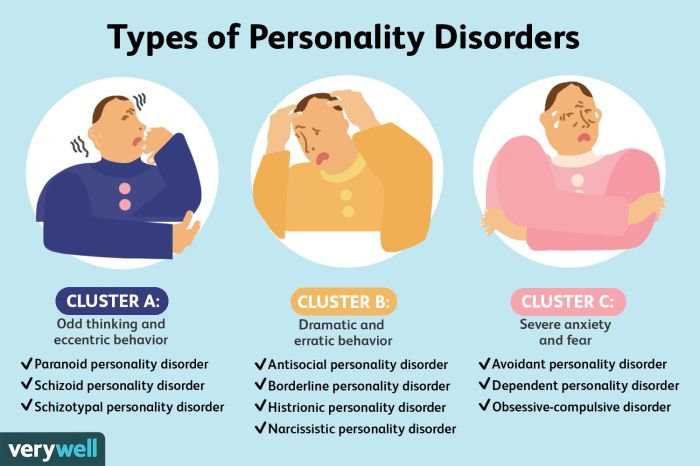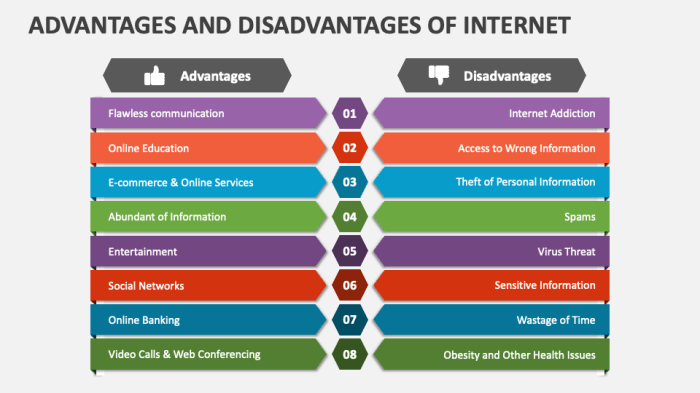Samir has been diagnosed with antisocial personality disorder (ASPD), a complex condition characterized by a persistent disregard for societal norms and the rights of others. This diagnosis raises significant concerns and challenges for Samir, his family, and society as a whole.
This exploration delves into the symptoms, causes, and potential treatments for ASPD, providing a comprehensive understanding of this enigmatic disorder.
The subsequent paragraphs will examine the diagnostic criteria, prevalence, and etiology of ASPD. We will analyze the symptoms exhibited by Samir and the assessment process involved in his diagnosis. Furthermore, we will explore the biological, psychological, and social factors that may have contributed to the development of his disorder.
Antisocial Personality Disorder: An Overview

Antisocial personality disorder (ASPD) is a mental health condition characterized by a long-standing pattern of disregard for and violation of the rights of others. Individuals with ASPD exhibit a lack of empathy, remorse, and concern for social norms and conventions.
The diagnostic criteria for ASPD, according to the Diagnostic and Statistical Manual of Mental Disorders (DSM-5), include:
- A persistent disregard for and violation of the rights of others
- A lack of empathy for others
- A history of impulsive and reckless behavior
- A history of aggression and violence
- A lack of remorse for their actions
- A history of irresponsibility and manipulation
ASPD is a relatively rare disorder, affecting approximately 1-4% of the population. It is more common in men than in women.
Samir’s Diagnosis: Symptoms and Assessment

Samir’s diagnosis of ASPD was based on a comprehensive assessment that included a clinical interview, a review of his medical and psychiatric history, and observations of his behavior. Samir exhibited several symptoms that are consistent with ASPD, including:
- A lack of empathy for others
- A history of impulsive and reckless behavior
- A history of aggression and violence
- A lack of remorse for his actions
- A history of irresponsibility and manipulation
For example, Samir has a history of getting into fights, stealing, and lying. He has also shown a lack of concern for the safety and well-being of others.
Etiology of Antisocial Personality Disorder

The etiology of ASPD is complex and involves a combination of biological, psychological, and social factors.
Biological factors that may contribute to the development of ASPD include:
- Genetic factors
- Neurobiological factors, such as abnormalities in the brain’s frontal lobe
Psychological factors that may contribute to the development of ASPD include:
- A history of childhood trauma or abuse
- A lack of parental attachment
- A history of negative peer relationships
Social factors that may contribute to the development of ASPD include:
- Poverty
- Unemployment
- A lack of social support
It is important to note that not all individuals who experience these risk factors will develop ASPD. However, these factors can increase the likelihood of developing the disorder.
FAQ Explained: Samir Has Been Diagnosed With Antisocial Personality Disorder
What are the key symptoms of antisocial personality disorder?
Individuals with ASPD often exhibit a disregard for the law, lack of empathy, and a tendency to manipulate or deceive others for personal gain.
What are the potential causes of antisocial personality disorder?
ASPD is believed to result from a combination of genetic, neurobiological, and environmental factors, including childhood trauma or neglect.
What are the treatment options for antisocial personality disorder?
Treatment for ASPD typically involves psychotherapy, such as cognitive-behavioral therapy or psychodynamic therapy, which aim to address underlying thought patterns and behaviors.
